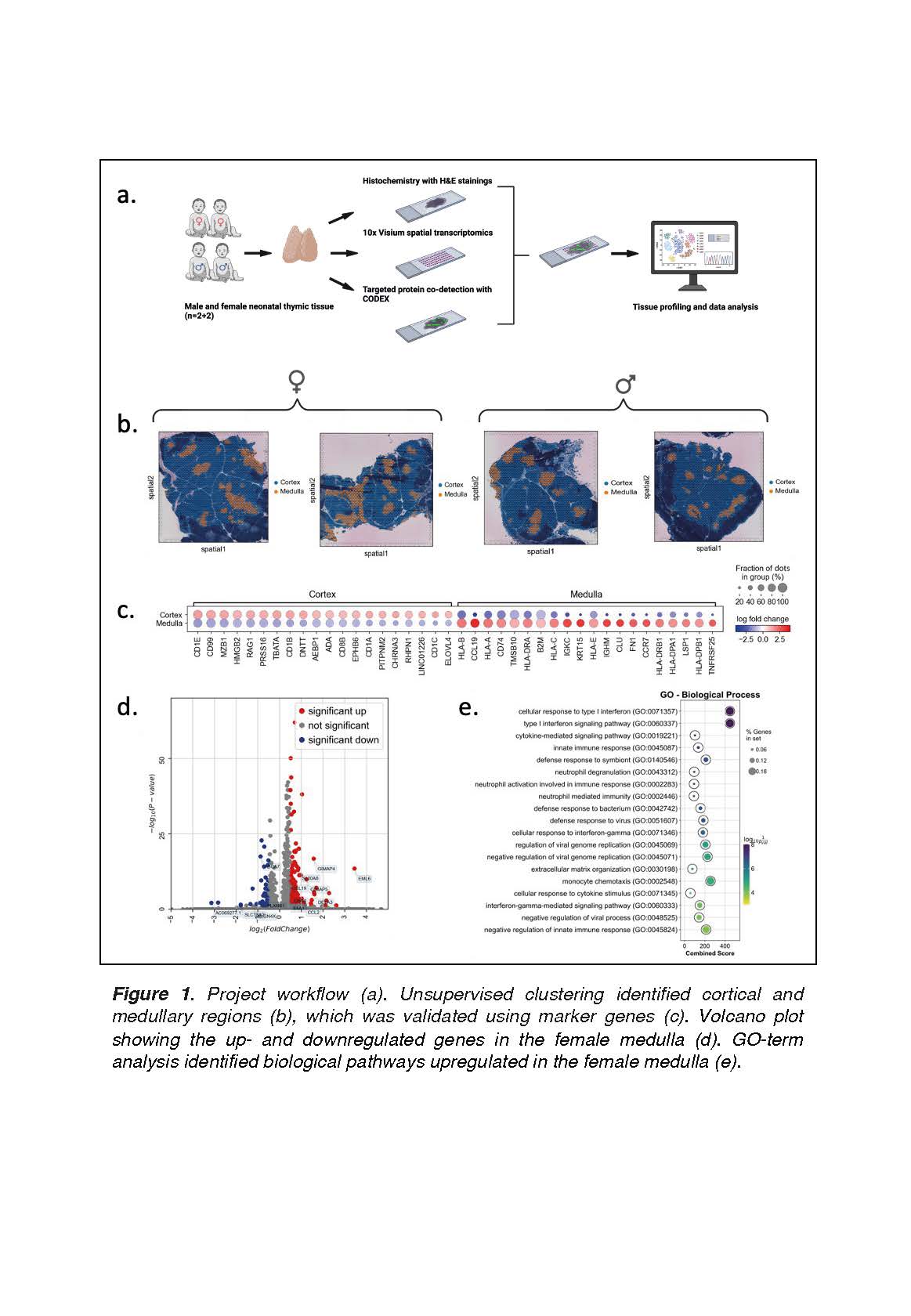Session Information
Date: Sunday, November 12, 2023
Title: (0066–0095) T Cell Biology & Targets in Autoimmune & Inflammatory Disease Poster
Session Type: Poster Session A
Session Time: 9:00AM-11:00AM
Background/Purpose: Females exhibit a more robust response to both self- and non-self-antigens than males which manifests as higher prevalence of autoimmune disease, eg. rheumatic diseases, and more effective response to infection in females. Both hormonal and genetic differences have been suggested as underlying factors, but the precise mechanisms that lead to sex-based differences in immune responses remain unknown. We hypothesize that a sex bias in thymic central tolerance induction is of importance for the female predominance in autoimmune diseases.
Methods: The 10X Genomics Visium Spatial Transcriptomic method was applied on fresh frozen human thymic tissues from girls (n=2) and boys (n=2), age 4 months. RNAseq data was acquired, and after quality control and filtering, approximately 3000 spots per section were analyzed using the Scanpy toolkit (Fig 1a). After integration of data using Harmony, unsupervised spatial clustering (Leiden_0.1) identified distinct regions that translated to the main functional and morphological compartments of the human thymus; medulla and cortex, which was validated by the expression of marker genes (Fig 1 b, c).
Results: Differential gene expression analyses of the medullary compartment identified sex-biased expression of genes and biological pathways of key importance in central tolerance induction such as chemotaxis, negative selection and regulatory T cell formation (Fig 1 d, e). Interestingly, we also found that the female medullary compartment showed a more pronounced pro-inflammatory milieu with upregulated type 1 and type 2 interferon gene signatures. Further sub-clustering of the medulla showed heterogenicity in this compartment, identifying spatial niches with differences both in cellular composition, spatial organization and functional characteristics.
Conclusion: The results expand our knowledge regarding the functional and spatial organization of the human thymus and strengthen the importance of sex-biased thymic central tolerance induction a possible explanation for the observed higher prevalence of autoimmune disease in females.
To cite this abstract in AMA style:
Hennings V, van Dijk A, Lemarquis A, Lundqvist C, Ekwall O. Sex Based Differences in Morphological and Functional Niches of the Human Thymus, Identified by Non-supervised Spatial Transcriptomic Profiling, May Underlie Sex Bias in Autoimmune Disease [abstract]. Arthritis Rheumatol. 2023; 75 (suppl 9). https://acrabstracts.org/abstract/sex-based-differences-in-morphological-and-functional-niches-of-the-human-thymus-identified-by-non-supervised-spatial-transcriptomic-profiling-may-underlie-sex-bias-in-autoimmune-disease/. Accessed .« Back to ACR Convergence 2023
ACR Meeting Abstracts - https://acrabstracts.org/abstract/sex-based-differences-in-morphological-and-functional-niches-of-the-human-thymus-identified-by-non-supervised-spatial-transcriptomic-profiling-may-underlie-sex-bias-in-autoimmune-disease/

